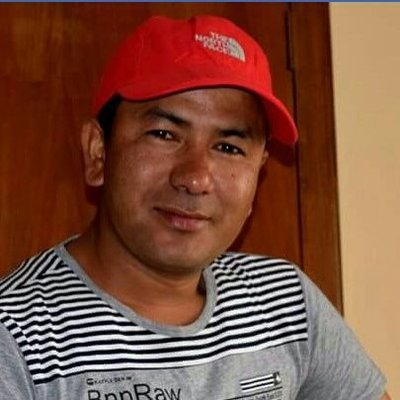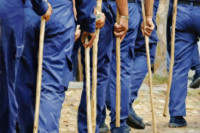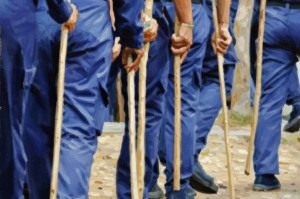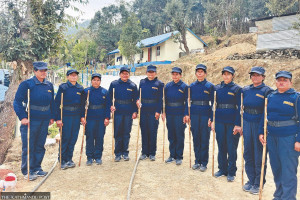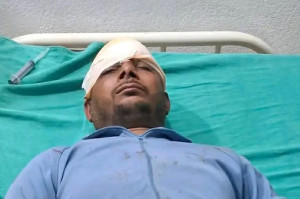Sudurpaschim Province
Shortage of blood putting lives at risk in Bajhang District Hospital
To meet the demand for blood, Nepal Army officials and hospital personnel have been donating blood at the hospital for the past three years..jpg&w=900&height=601)
Basant Pratap Singh
Early on Thursday morning, Gita Rokaya underwent acute labour. Rokaya was bleeding profusely when her relatives took her to the district hospital in Chainpur, Bajhang’s district headquarters, from the rural village of Gadaraya. It was already five in the evening when she was admitted to the hospital. The excessive bleeding had already taken its toll on her body.
Once admitted, the doctors at the hospital announced Rokaya had lost too much blood and asked her relatives to arrange for pints of B positive blood, Rokaya’s blood group. The relatives tried to manage the blood but couldn’t. After several failed attempts, they tried to take Rokaya to Dhangadi. That too didn’t materialise. As a last resort, the relatives took a bus to Dhangadi at eight pm.
After an eleven-hour bus ride, the family reached Dhangadi where Rokaya underwent surgery successfully. “We had already lost hope,” said Milan Rawal, a surgeon at the district hospital in Bajhang. “Since her body was already short on blood, we had only a little hope left. Thankfully, she survived.”
In another instance, a month ago, Gita Joshi, 21, from Dadagaun in Jayaprithvi Municipality, went through a similar ordeal during childbirth. Her husband, Gajendra Joshi, couldn’t manage blood after Gita bled profusely. Gajendra had lost all hopes until a police head constable, Mahendra Bahadur Bam, donated blood. “If there was any more delay, we wouldn’t have been able to save her,” Gajendra said.
Like Rokaya and Joshi, cases of victims suffering due to blood shortages have become a pervasive problem. The district’s best-equipped hospital, the Simkhet-based District Hospital, does not have a blood bank. Cases like the ones mentioned above occur on a daily basis. “As far as the blood group matches, army personnel, police constables and hospital officials volunteer to donate blood,” said Narayan Prasad Joshi, an official at the hospital. “When we can’t find blood, we refer the patients to hospitals outside the district. That’s all we can do.”
Joshi added that he has personally donated blood to eight patients so far. In the past three years, Nepal Army personnel have donated blood to 32 patients and hospital officials to 30 patients, according to data by Sangram Sardul Company in Bajhang.
“It’s a sensitive issue,” said Sandip Okhada, hospital chief. “Searching for a pint of blood takes an entire day, sometimes it is not available at all.”
Okhada added that they carry out almost every surgery under great risk. “Should there be any big accident or emergency, the chances of survival are slim,” said Okhada. He said that he has prepared a proposal to send to authorities requesting to establish a blood bank. “Hopefully, the process will move forward soon, so patients won’t have to risk death in a shortage of blood.”




 9.83°C Kathmandu
9.83°C Kathmandu